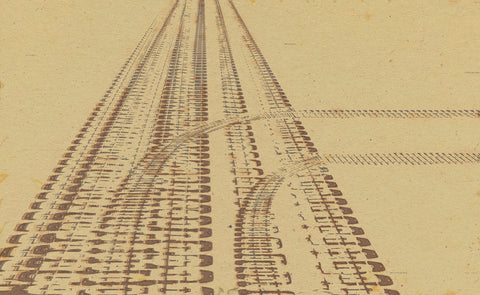
This US Commander Got Blamed for Letting a German Army Escape — and It’s Not Fair

ONE OF THE THINGS I’VE REALIZED when it comes to studying the war is that once a narrative becomes entrenched, it’s difficult to get people to see it any other way. Take U.S. Fifth Army commander Lieutenant General Mark W. Clark, for example, and the fall of Rome on June 4, 1944.
In the decades since, historians, commentators and writers have repeatedly criticized the victorious Clark for disobeying an order of 15th Army Group commander General Harold Alexander. Instead of conducting an “all-out” drive on the town of Valmontone, some 20 miles southeast of Rome, as Alexander had ordered, Clark sent his VI Corps in a different direction, thereby, they say, letting the German Tenth Army escape—all in a vain effort to reach Rome first.
I remember traveling across this route some years ago and gazing up at the Alban Hills just south of Rome. Back in late May 1944, that’s where another German army, the Fourteenth, had moved south and was lined up on a defensive position called the Caesar Line. As I drove along, I thought, “I don’t blame Clark for turning the bulk of his forces to face them rather than exposing his flanks.”
It prompted me to delve into this controversy in detail, traveling over the ground and scouring contemporary sources. What I discovered was very interesting. In the pre-battle plan for Operation Diadem—General Alexander’s strategy for smashing through German positions at Cassino and capturing Rome—it had been expected that the British Eighth Army would lead the charge to Rome through the Liri Valley. On their left flank, in the mountains, would be Fifth Army’s French Expeditionary Corps and II Corps. At a key moment, VI Corps would then charge northeast from Anzio toward Valmontone—which lay astride the main road to Rome from the southeast, the Via Casilina—and so cut the path of the retreating German Tenth Army, which would then be effectively encircled.
As everyone knows, the first thing to go astray in a battle is the plan, and Diadem was no exception. Eighth Army got bogged down in the Liri Valley while the French and II Corps steamed ahead of them on their flank. This pushed Tenth Army eastward; they retreated north through parallel valleys beyond the Via Casilina. Not one German soldier escaped down the Via Casilina. Not one! That meant that even if VI Corps had gone all out for Valmontone, they wouldn’t have cut off Tenth Army’s retreat. Behind Valmontone were more mountains that barred any chance of VI Corps pushing farther east.
Instead, Clark’s troops turned to take on Germany’s Fourteenth Army, lined up along the Caesar Line. They went for Valmontone, too, but not “all-out.” Clark’s men got bogged down in the Alban Hills, but then the 36th “Texas” Division made a breakthrough; the gap was swiftly exploited with impressive tactical flexibility, Fourteenth Army was hammered, and Rome taken. The scattered remains of Tenth Army got away—but not because of Clark’s refusal to go “all out” to Valmontone.
Nowhere in their journals, letters, or diaries do any of the leading players criticize Clark for his decision. The only contemporaneous voice of dissent comes from VI Corps commander Major General Lucian Truscott, who couldn’t fathom why Clark was turning into the Alban Hills when he might have used the Via Casilina as the prime axis into Rome.
So where did this maligning come from? Raleigh Trevelyan, that’s who. He was a junior officer in the British Eighth Army who had heard a rumor attributed to Clark that any Eighth Army soldier seen in Rome would be shot. This was complete nonsense but spread quickly. In the 1960s Trevelyan wrote an account of the battle and cited Harold Macmillan, the leading British politician in Italy during the war, claiming Alexander was “furious” when he discovered Clark had “disobeyed” his orders over Valmontone.
Really? Alexander was famous for never losing his temper and there is no mention of this supposed fury in Macmillan’s diaries of the time. Nor was the quote footnoted in Trevelyan’s book. For me it’s an open-and-shut case of injustice against Clark, who deserves much better. No doubt, though: it’s a myth that will remain trapped in its particular foxhole.

